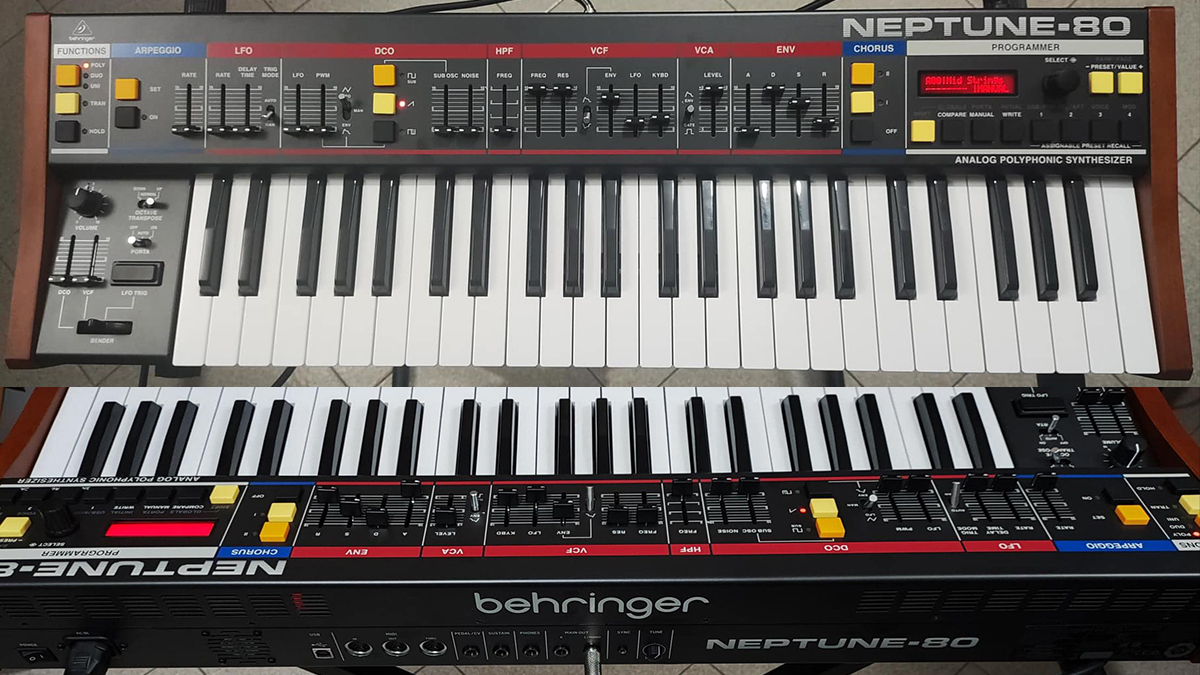“We finally gave in”: Behringer takes on the Roland Juno-6/60 with its Neptune-80 synth
Having “resisted for a long time”, Behringer is tackling “one of the most sought-after synths”

We just can’t keep up with Behringer at the moment. Here we were thinking that we’d told you everything you needed to know about the company’s latest moves in the synth market, and then it goes and drops the Neptune-80, a new keyboard that’s inspired by Roland’s Juno-6 and Juno-60.
“So, for years you guys have been urging us to build one of the most sought-after synths,” says Behringer on Facebook. “We managed to resist for a long time, but we finally gave in.”
The look of the thing alone makes this inspiration very clear, though the Neptune-80 is missing an octave of keys, which will undoubtedly irk the 61-note devotees. You do get a couple of extra voices of polyphony, though - eight rather than six. Other features include an “original analog matrix”, BBD chorus, a more contemporary user interface with LCD Display, USB and MIDI.
Released in 1982, the Juno-6 is undoubtedly a classic and, aside from the addition of patch storage, the Juno-60 is very similar. The Juno-106 completed the holy trinity in 1984, adding MIDI to the already winning formula.
It remains to be seen how long it will take Behringer to bring the Neptune-80 to market. The company certainly has a lot on its plate at the moment; we’re still waiting for its Moog Taurus, Solina String Ensemble and Sequential Prophet-600 emulations to land (among many other things), and the well-documented chip shortage means that pinning down release dates is difficult.
The Neptune-80 is undoubtedly an instrument that will attract a lot of interest, though - we’ll bring you more details when we have them.
Get the MusicRadar Newsletter
Want all the hottest music and gear news, reviews, deals, features and more, direct to your inbox? Sign up here.



I’m the Deputy Editor of MusicRadar, having worked on the site since its launch in 2007. I previously spent eight years working on our sister magazine, Computer Music. I’ve been playing the piano, gigging in bands and failing to finish tracks at home for more than 30 years, 24 of which I’ve also spent writing about music and the ever-changing technology used to make it.
“Do you dare to ditch those ‘normal’ beats in favour of hands-on tweaking and extreme sounds? Of course, you do”: Sonicware CyDrums review
“Excels at unique modulated timbres, atonal drones and microtonal sequences that reinvent themselves each time you dare to touch the synth”: Soma Laboratories Lyra-4 review









